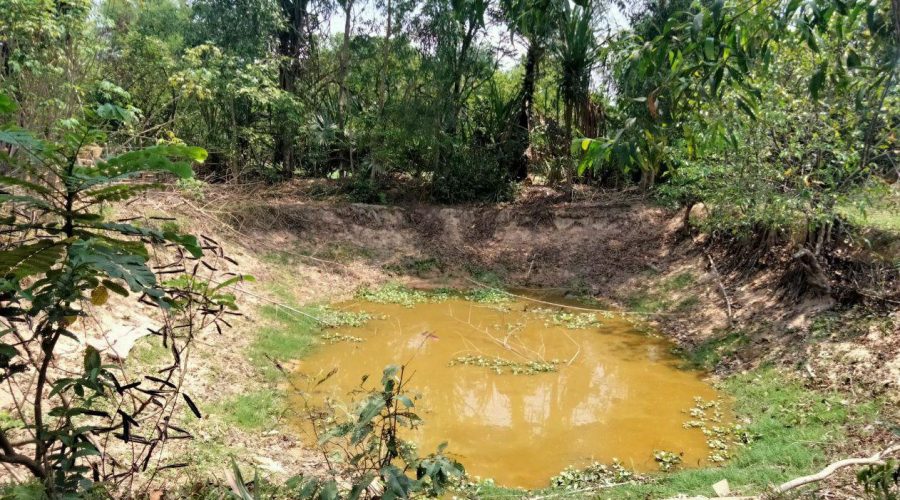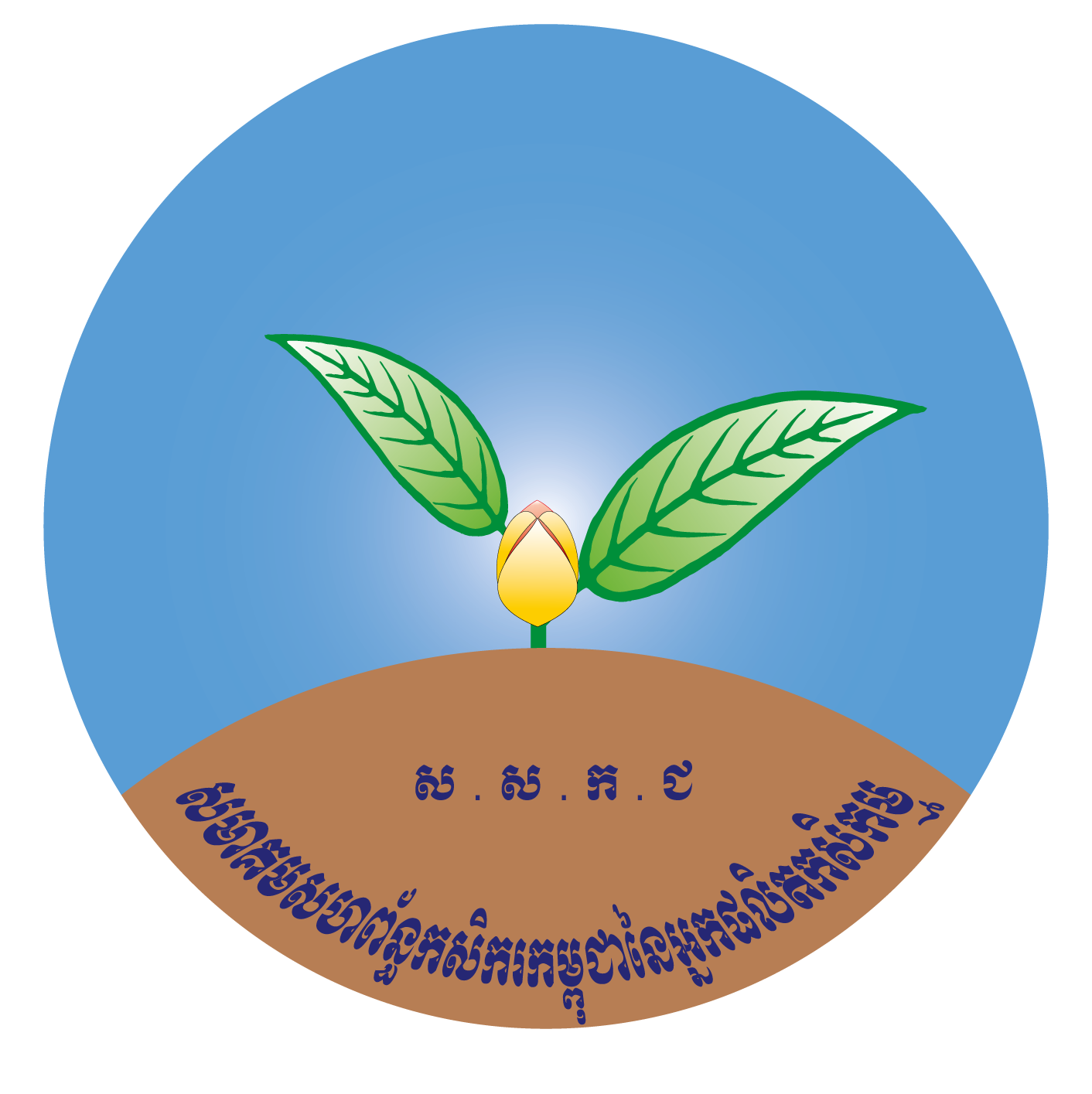
WATER USES AND WATER MANAGEMENT ARE KEY TO SUSTAINABLE AGRICULTURE OF SMALLHOLDERS IN RURAL CAMBODIA
Cambodia is considered as agricultural country and remain more rural society which around 76.2 percent of the Cambodian population lives in the countryside and rely on agricultural livelihood activities to survive the family. According to the national census in 2019, 34 percent of people were employed in agriculture of the population being farmers, most farmers are smallholders live in the rural areas. At the same time, farmers have constantly faced problems with water to grow crops and vegetables in a year-round that always hinder farmers from meeting regular supplying markets, especially smallholders where they could not get access to water and knowledge on uses of water and water management.
From February 2020 till December 2023, more or less Covid-19 still has put additional pressures to climate change in particular water issue and water storage which farmers do not have sufficient water to irrigate their crops in a year-round, especially in dry season while in rainy season it is always flooded which farmers have limited themselves to expand their farming activities, and at the same time they have also limited their living livelihoods as well.
Due water issues and climate change, therefore vegetables and crops production produce by farmers in Cambodia cannot meet local market demands which consumers need more than 1million ton annually while Cambodian farmers can produce only about 700000tons per year, therefore 30% of vegetables products imported from neighboring countries. Prices of agricultural products are also cheap compared to agricultural production costs in Cambodia and farmers, especially smallholders always lost when they face challenges on climate change and other negative impacts on agricultural sector.
Further farmers also lack of knowledge on uses of water and water management and also capacity to harvest rain water in rainy season for storage and use in dry season, previously CFAP – Cambodia provided 35 household ponds for poor, women-led and widow family farmers, but it was very little compared to large number of poor, women led and widow family farmer members.
Why do we need to pay attention to and address the water crisis and water management for agriculture?
Water is a life, “no water no life”. Human beings, animals, plants, earth and our environment need water to survive, so agriculture needs irrigation systems, water storage and water management. We need water for year-round, not only to survive our lives, but also for cultivation to improve our food production to meet increased demands and contribute to a sustainable agriculture, sustainable food, sustainable food systems and sustainable environment. Agriculture always absorbed drought and related closely to loss and damages, and finally they fell into chronic debt. Amongst those, farmers feel more than anyone else the importance of an integrated approach because it is about their livelihoods and food we eat every day.
Farmers need capacity building on uses of water, management of water and opportunity to harvest rain water for irrigation in dry season. Now more than ever farmers members be recognized and empowered not as food producers, but also as steward of natural resources and need critical policy to support farmers and to ensure that farmers get access to water for irrigation in a year-round sufficiently.
We as farmers’ organizations are ready to work in partnership with other partners to ensure integrated water and food systems management is included in the country’s climate action plans and strategies. We are as farmers’ organizations at all levels are ready to support as partnership in identifying and scaling up successful initiatives and practical solutions adopted its members and wider network the experiences of farmers to inform the National Adaptation Plan (NAP) and nationally determined contribution (NDC) as well as risk management response strategies at all levels.
Khmer saying said that “do rice with water, do war with food” it has remarked clearly that agriculture cannot grow without water for the cultivation of crops, vegetables, fruit trees, rice and many other crops as well as animals. Farmers need irrigation systems with centipede-legs canal systems that can irrigate crops, vegetables, fruit trees, and rice in both dry and wet seasons. Cambodia has two main seasons: the dry season (November to April) and the rainy season (May to October). Currently, due to the lack of irrigation systems and poor water management, there is a shortage of water in the dry season, and in the rainy season, there is flash flood every year, especially in the last two decades and in early 2023, some parts of the Cambodia have big flash flood issues and destroyed hectares of rice of smallholders.
Based on our experiences with farming communities and farmers in network, we learned that the capacity of the current canals is not able to distribute water to farmers’ farms effectively for irrigation as the level of water surface is too much lower than the level of farm land and it is required to revitalize and re-design the water canal master plan development in the future which participate by farmers and farmers’ organizations.
We need to have clear policy on agricultural water while most canal systems being used for water release and or drainage rather than for water storage for agricultural cultivation. Currently, Cambodia has about 45% of irrigation systems, but only about 15% can be used for agriculture.
For example, Krachab agricultural corporative in Pailin province, which has 96 family members and 48 women, always suspended vegetable production by up to 70% in the dry season due to the lack of water for irrigation while other provinces have similar problems on water and water management that always restrict growth of agricultural production improvement, especially in dry season and facing problems on flash flood in rainy season. Many farmers in some areas always use ground water to irrigate their crops in dry season and finally they resulted with poor soil quality and they are facing soil quality improvement that will cost lost of money to improve, otherwise they cannot continue to grow vegetables and crops any more in the future while ground water is also facing scarcity from year to year too.
Cambodia is potential for agriculture; therefore, irrigation systems should be prioritized highly to improve agricultural production capacity to ensure farmers can continue to doing their farming activities in a year-round to increase safe and healthy foods to feed the growing population now and in the future. Our smallholders need to improve food production, not only to fulfill the lack of vegetables for local consumptions but also to improve agricultural quality of farmers to meet market demands and livelihood improvement now and in the future. We also experienced that small household ponds given by CFAP – Cambodia needs to improve based on a previous design to meet the needs of smallholders. Large scale water investment by farmers are not profitable, therefore development programs on agricultural water should be considered highly to ensure farmers get access to water for agricultural production improvement.
Finally, we as farmers, producers and farmers’ organizations are ready to be partnership with all stakeholders including government, UN agencies, development agencies and private sector and academia and relevant actors to work together to tackle farmers’ concerns for the prosperity of humanity.
Water gives life, agriculture can’t thrive without water and proper irrigation systems, so water policy is very important to produce more foods, especially safe and healthy foods in the future.
